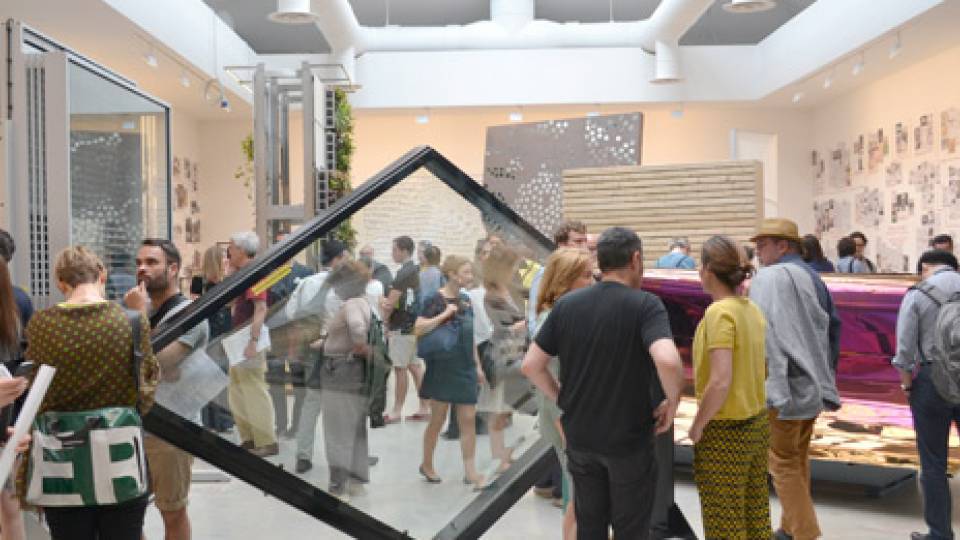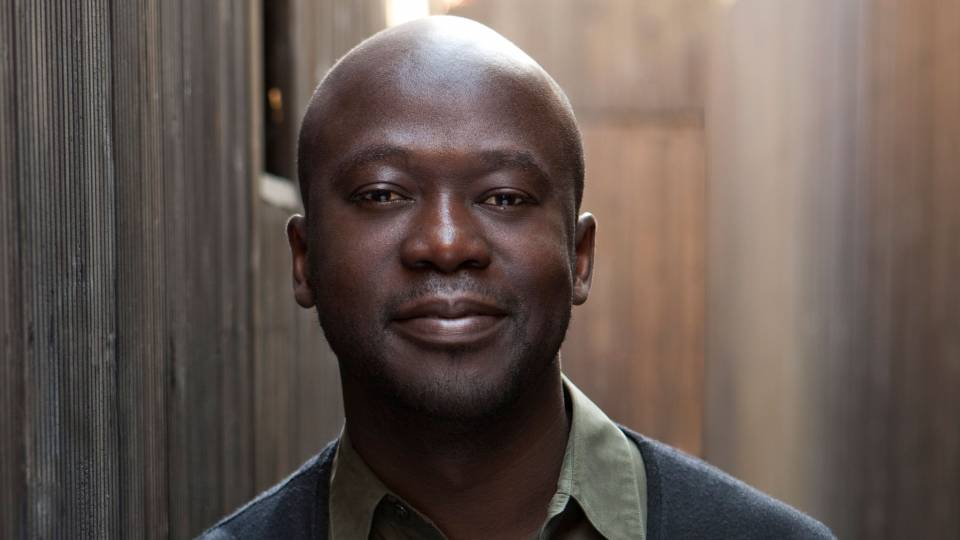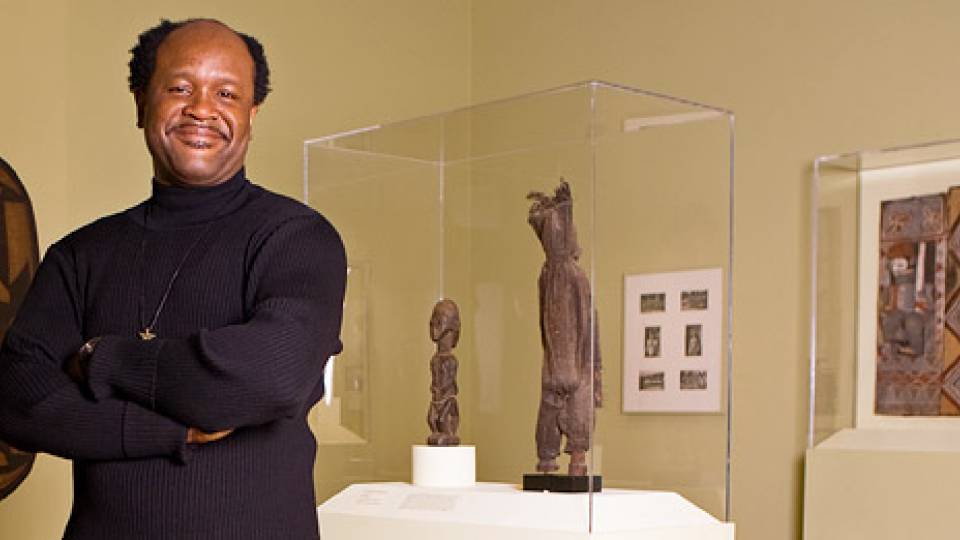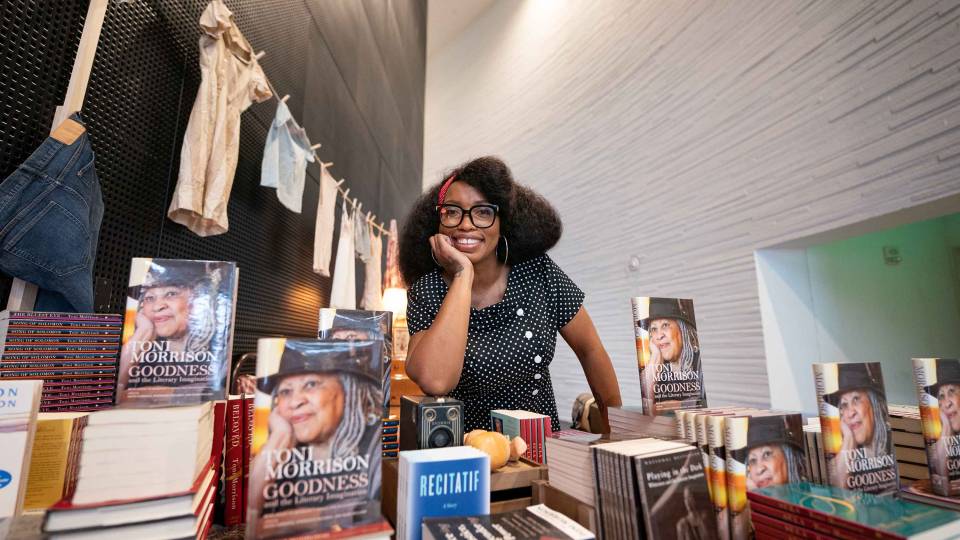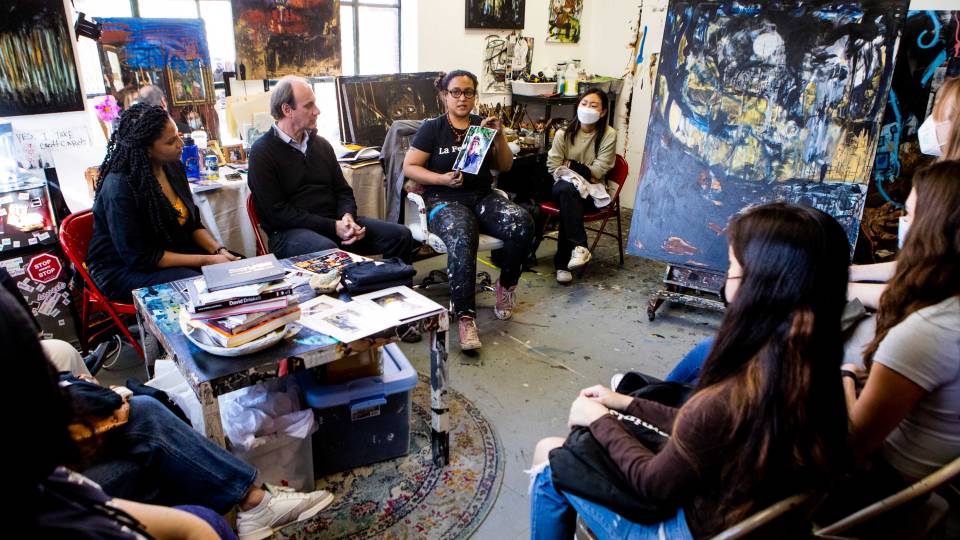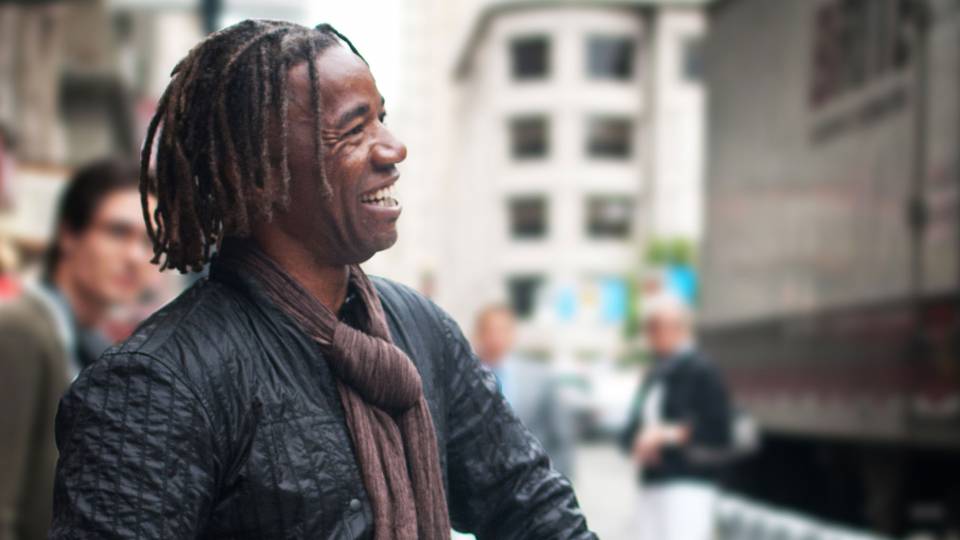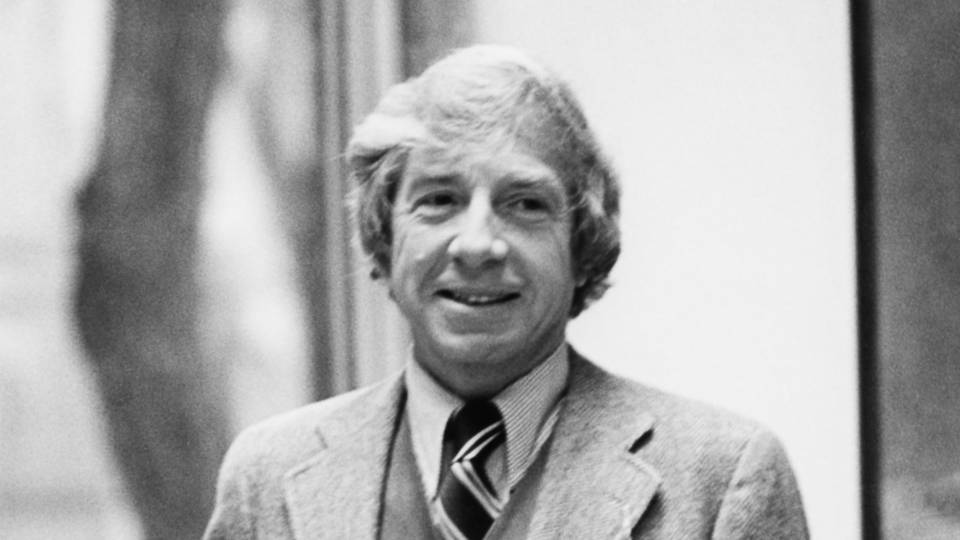Julian Chehirian was born in Brooklyn, the child of artists who fled Bulgaria’s political repression at the end of the 1980s, about a year before the fall of the Berlin Wall. After being granted asylum at the Traiskirchen refugee camp outside Vienna, they waited a year and a half for safe passage to the U.S. They never expected to return.
When the 60th Annual Venice Biennale opens on April 20, the exhibition pavilion representing Bulgaria will display the work of Chehirian, a graduate student in the history of science and the Interdisciplinary Doctoral Program in the Humanities (IHUM), and his two collaborators, Lilia Topouzova and Krasimira Butseva. Chehirian's father died in 2011; his mother, who returned to live in Sofia, Bulgaria, in 2018, will attend the opening of the Biennale.
Chehirian's multimedia installation, "Neighbours: Forms of Trauma (1945-1989)," on view through Nov. 24, will take visitors inside a chapter of Bulgarian history that has been largely absent from textbooks, museums and public debate — the forced labor and political violence in the Bulgarian gulag under Communist rule from post-WWII through the late 1980s before the fall of the Soviet Union.
Princeton’s Chika Okeke-Agulu, the Robert Schirmer Professor of Art and Archaeology and African American Studies, is also participating in the Biennale, as a member of the exhibition's International Jury. Okeke-Agulu is director of Princeton's Program in African Studies and of the University's Africa World Initiative.
Artistic attention as 'a form of care'
“Neighbours” presents memories of the gulag, conveyed in a series of three furnished rooms that viewers walk through: a living room, a bedroom and a kitchen. Multimedia elements include found objects, video projections and audio recordings that intentionally fade in and out.
The Guardian called it one of the Biennale's “Ten must-see pavilions," with "profoundly moving revelations about the country’s Communist-era history transmitted through the furniture in a typical Bulgarian home."
In the living room and the bedroom, the audio tracks include excerpts from the three collaborators’ interviews with survivors. In the kitchen, domestic sounds stand in for survivors too traumatized to tell their stories. “It holds space for those who wanted to speak but could not, those who chose not to speak and those who did not survive to be able to give testimony,” Chehirian said.
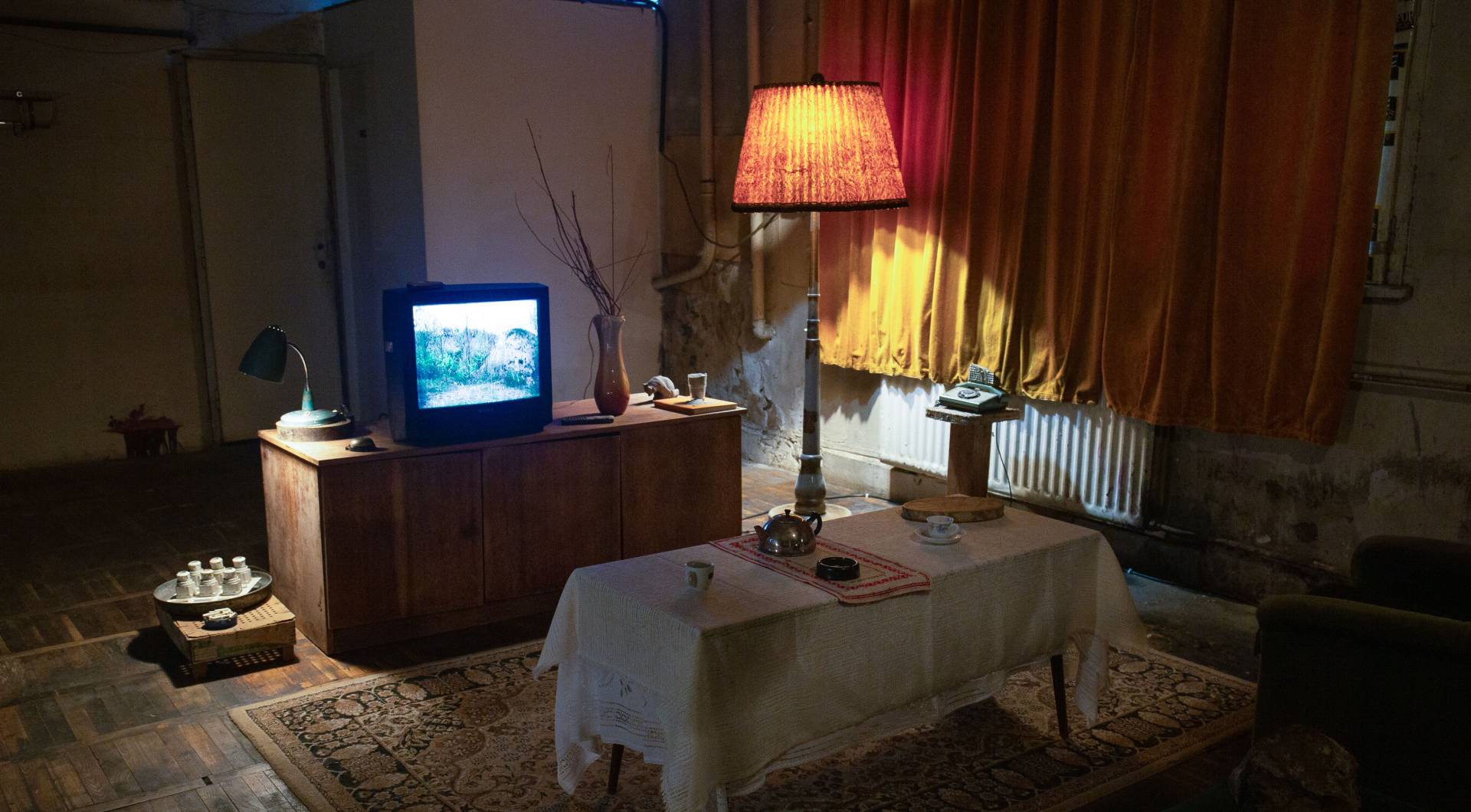
The living room of "The Neighbours," photographed in 2022 during a temporary installation in the artists' former studio in Sofia, Bulgaria.
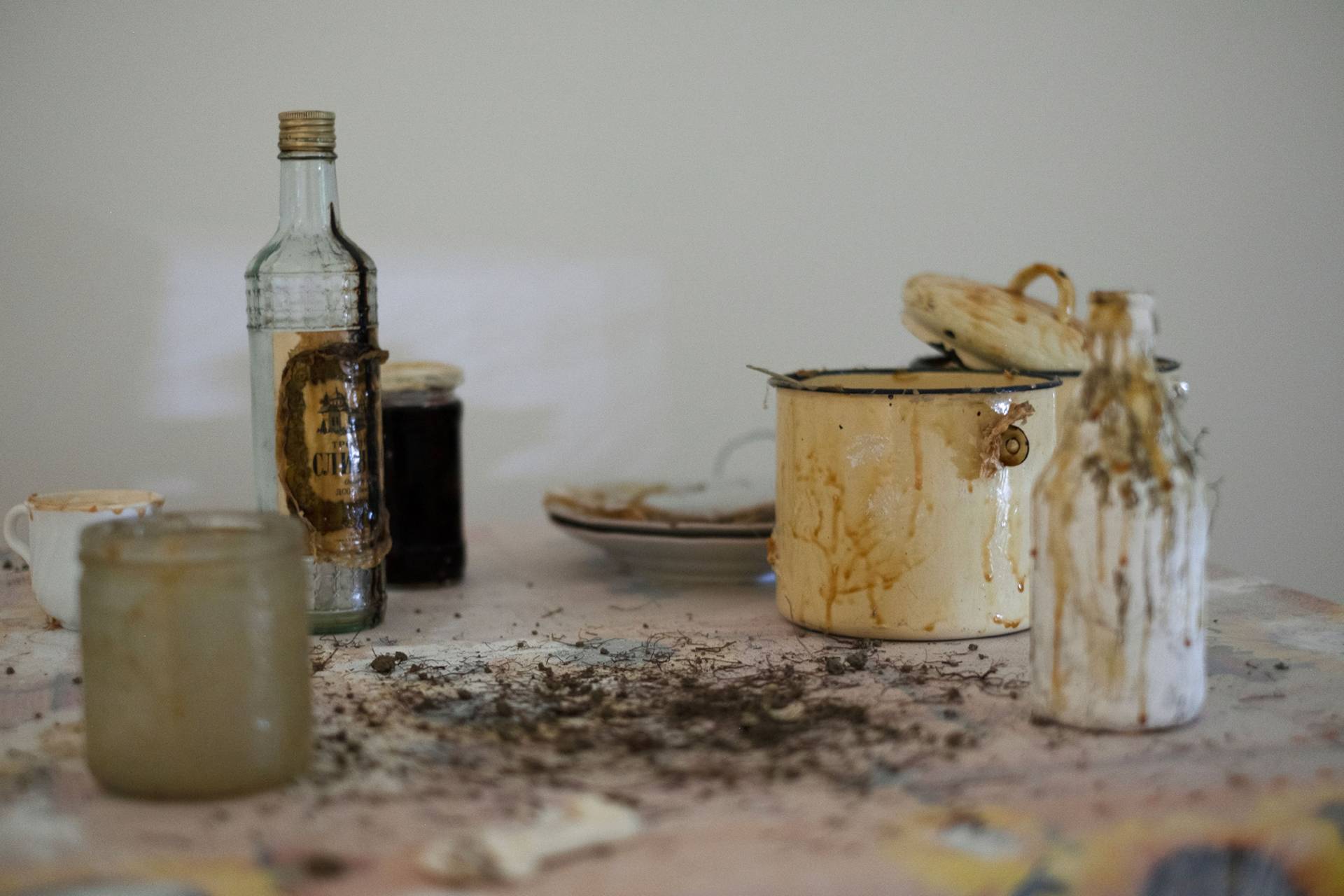
A detail from the kitchen in "The Neighbours" from a 2023 installation at Structura Gallery in Sofia.
Chehirian’s scholarly research focuses on the history of art-making as form of psychotherapy, and on multimedia installations as a means of historical research.
Butseva, a senior lecturer at the University of the Arts London, also uses art to explore memory, trauma and memorialization.
Topouzov, an assistant professor of history and creative nonfiction at the University of Toronto and a documentary filmmaker, focuses on remembering and forgetting in the Bulgarian gulag, particularly.
With their multimedia piece, “our aim is to encourage and invite collective reckoning, reconciliation and healing by way of attention,” Chehirian said. “We believe that to give attention to others is a form of care.”
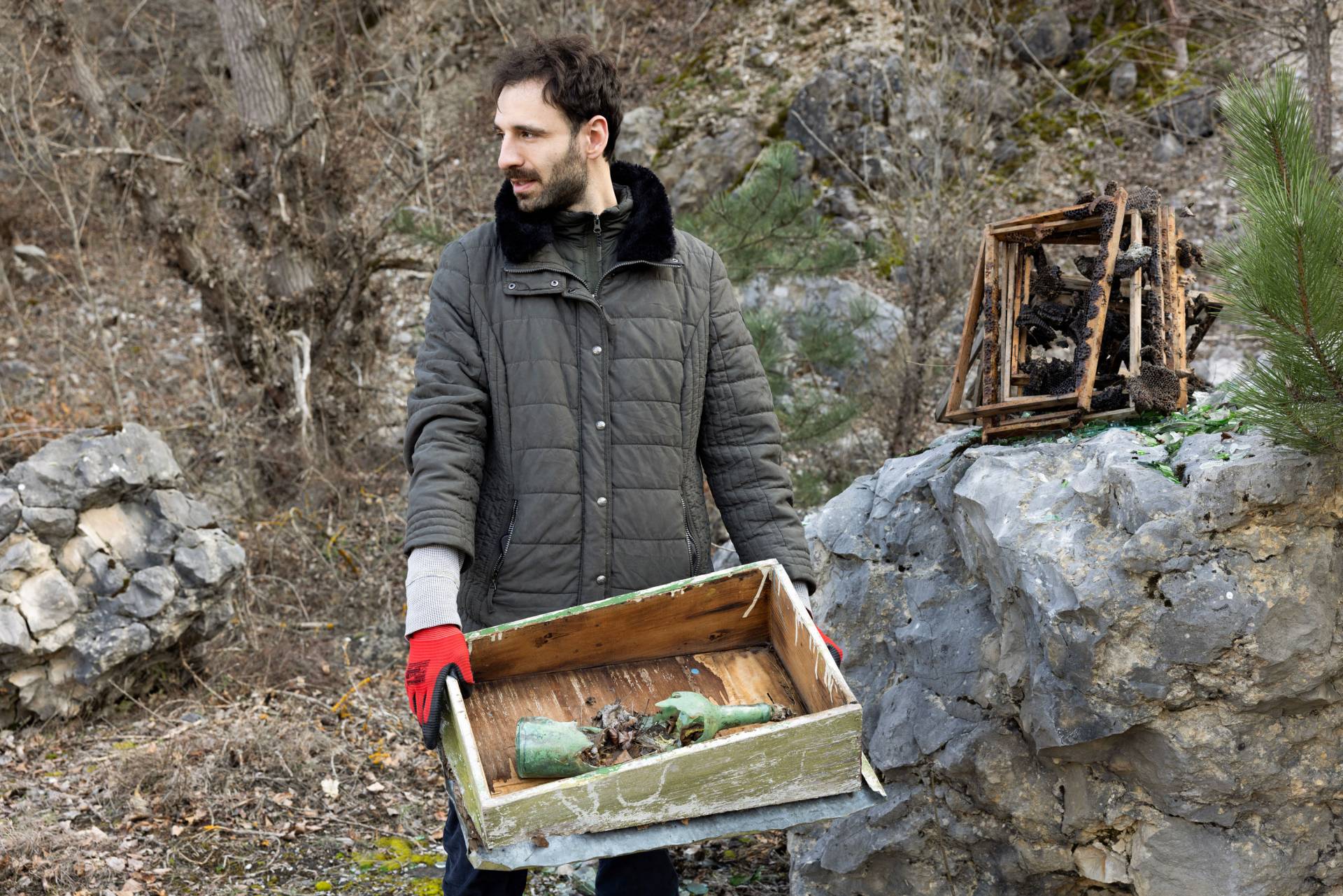
Julian Chehirian collects found objects at former labor camp in Lovech, Bulgaria.
The path to the Biennale pavilion
Chehirian spent short visits with relatives in Bulgaria as a child and returned there as a Fulbright scholar in 2014 at the New Bulgarian University in Sofia, where he met his collaborators and curator Vasil Vladimirov, and where work on “Neighbours” began.
In November 2023, Bulgaria's Ministry of Culture announced an open competition for proposals for the Bulgarian Pavilion, and the team decided to submit their work. It was shortlisted and then, after “a daily rollercoaster of hope and disbelief," selected to represent Bulgaria at the Biennale.
“The feeling then was utter shock, followed by disbelief,” Chehirian said. “I still cannot comprehend that our efforts are being recognized in this way, and that voices of survivors, silenced for so many decades, will be heard for seven months in a nationally commissioned pavilion about the echoes of Bulgaria's past in its present."
He marveled that their project, "which has been a 10-year-long effort to unsilence a complex chapter of Bulgarian history, has now been commissioned to represent Bulgaria by its Ministry of Culture.”
“We believe that this is a step forward in which the state participates actively in coming to terms with the silenced past,” he said.
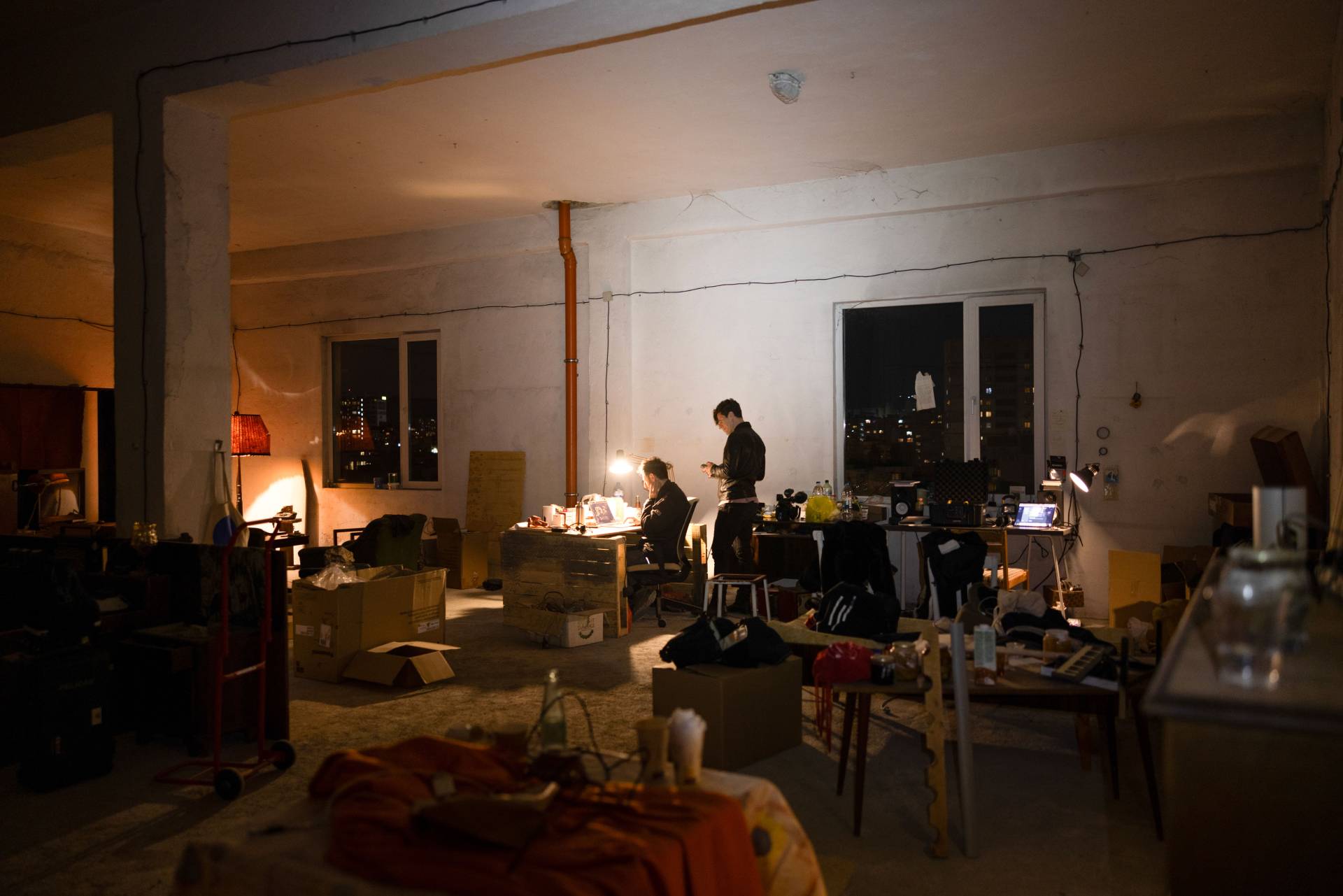
Julian Chehirian (left), with documentary filmmaker and team member Jorge Rubiera in the studio preparing for Venice Biennale installation of "The Neighbours," 2024.
Funding from Princeton's Department of History helped the team complete the project. Through Princeton's GradFutures University Administrative Fellowship, Chandler Allen, a graduate student in the history of science, will join the artists in Venice as academic events programmer.
The work has been staged previously twice in Sofia, in late 2022 and June 2023, and at the University of Toronto in Sept. 2023. Portions of the Toronto exhibition were presented at Princeton in November 2023 as part of a new series of salons organized by IHUM.
With an anticipated 800,000 visitors over seven months, the Venice Biennale brings it to a global stage.
“In a moment where authoritarian politics are ascendant globally, we hope that our approach to working with silenced archives and testimonies can encourage compassion and tolerance towards difference, ambiguity, complexity and contradiction,” Chehirian said. “While there is a particular relevance for this goal in the Bulgarian context … there is a broader message in our work."

Vasil Vladimirov (left), Krasimira Butseva, Lilia Topouzova and Julian Chehirian.
